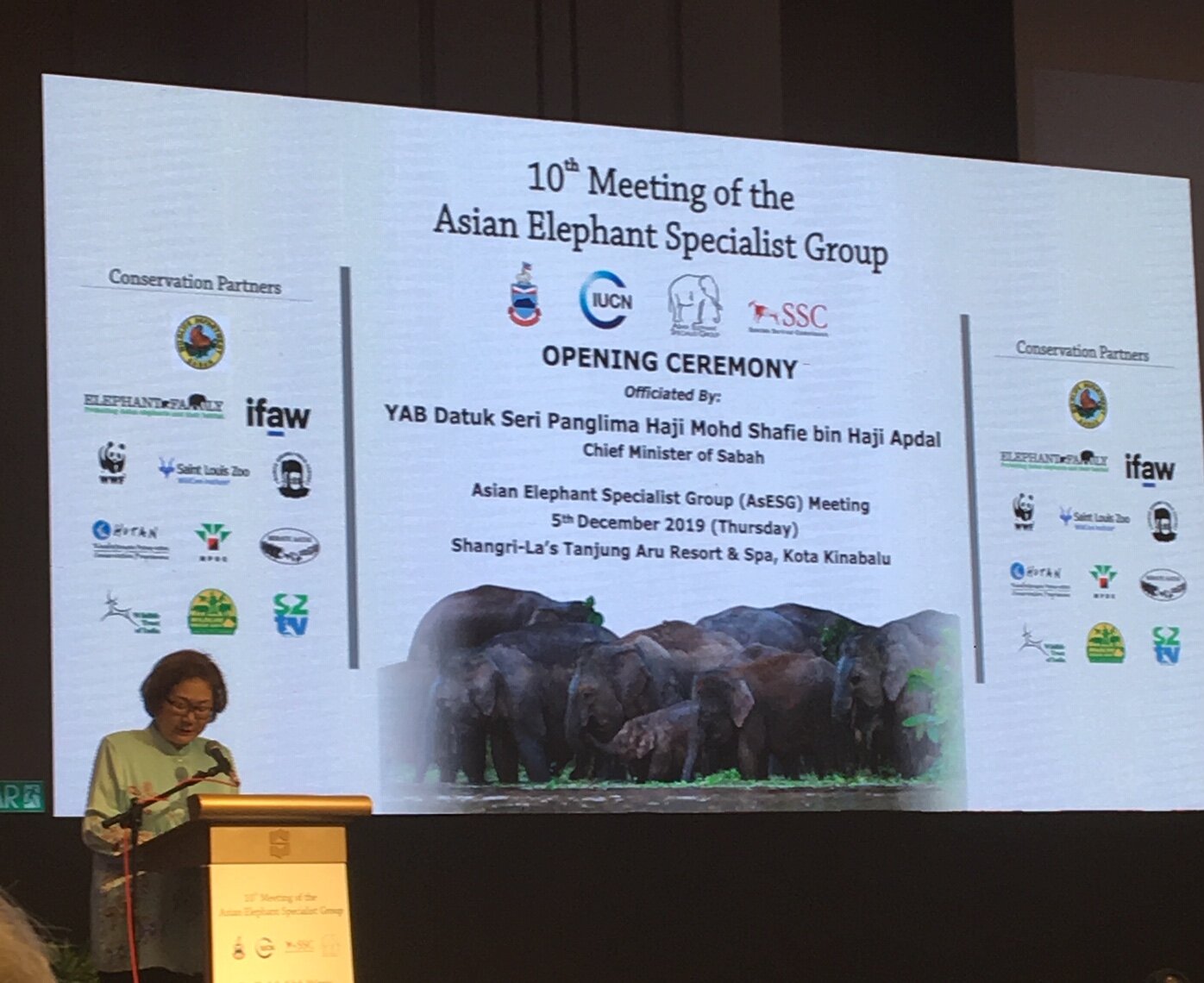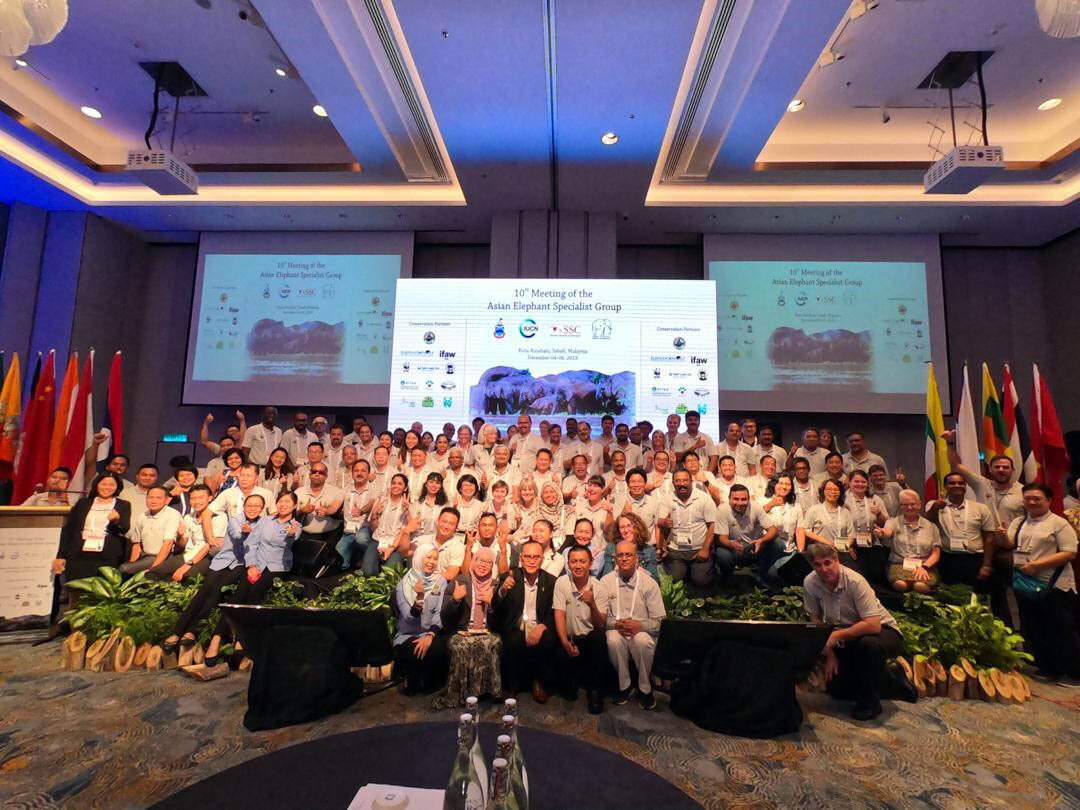At the meeting in Sabah, Malaysian Borneo, our advisor Heidi Riddle met with various colleagues including AES grantee Wahdi Azmi from Sumatra, Indonesia.
We were honored to receive an invitation to a Partners Roundtable held during the 10th Meeting of the IUCN Asian Elephant Specialist Group, December 4-6, 2019 in Sabah, Malaysian Borneo. The Partners Roundtable provided an opportunity to link Asian elephant conservation donors with government representatives from Asian elephant range countries.
AES President Linda was unable to attend so our advisor Heidi Riddle represented us at the meeting.
The IUCN Asian Elephant Specialist Group is a volunteer advisory group of Asian elephant experts in various fields who provide technical expertise to governments and organizations.
These gatherings are always a nice opportunity to meet various partners, including AES grantees, from Asia and share experiences about developments in Asian elephant conservation.







